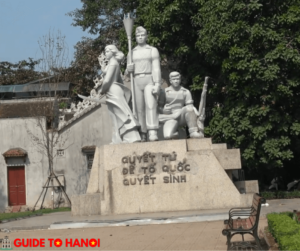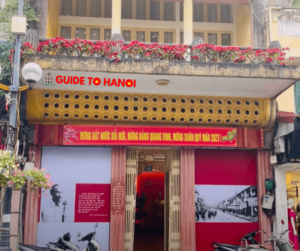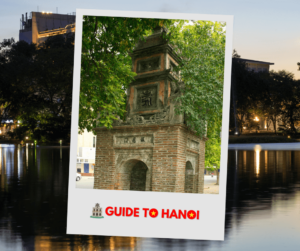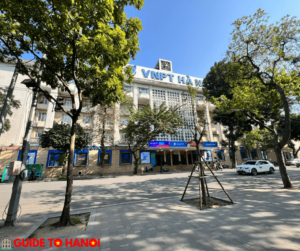Cua Bac (Main Northern Gate)
In the bustling streets of Hanoi’s Phan Dinh Phung, a historic gem stands tall, reminding visitors of a bygone era.
Chinh Bac Mon, also known as Cua Bac (Cửa Bắc – Thành Hà Nội), is the main northern gateway to the Thang Long Imperial Citadel, a testament to Vietnam’s rich history and resilience.
A Glimpse into History
Built-in 1805 during the Nguyen Dynasty, Chinh Bac Mon replaced the original gate from the Le Dynasty.
The gate’s architecture includes a watchtower gazebo atop an 8.71-meter-high, 17.08-meter-wide wall, providing a strategic vantage point for imperial troops.
Guardian of the Citadel
The watchtower gazebo played a crucial role in defending the citadel.
Even after the French occupation, it served as a sentry box, a silent witness to Hanoi’s tumultuous past.
Honoring Heroes
Today, the watchtower gazebo is partially restored, serving as a place of worship for two provincial chiefs, Nguyen Tri Phuong and Hoang Dieu, who bravely fought against the French.
Locals pay homage to these heroes, burning incense in their memory.
Architectural Marvel
The gate’s rampart is a masterpiece of stone and brick construction. The solid brick arch, adorned with lotus motifs, supports two massive wooden doors that weigh approximately 16 tons each.
Above the doors, Chinese characters proclaim the gate’s name, while stone carvings of flowers add a touch of elegance.
The Moat Mystery
In front of Chinh Bac Mon, a brick bridge once crossed a 20-meter-wide moat, providing further defense for the citadel.
Whether defensive or not, the purpose of the moat remains a topic of debate among historians.
Layers of History
Beneath the grandeur of the Nguyen Dynasty’s gate lie remnants of earlier citadels, highlighting the continuity of Hanoi’s history.
Archaeological excavations have unearthed traces of the Le Dynasty, underscoring the site’s historical significance.
A Living Heritage
Today, Chinh Bac Mon is a popular tourist destination, offering a glimpse into Hanoi’s past.
Visitors can still see bullet holes from the French cannon, a reminder of the city’s resilience against foreign invaders.
No wonder it became a famous photo spot location in Hanoi!
Preserving the Past, Embracing the Future
Chinh Bac Mon preserves Hanoi’s ancient citadel and honors the city’s spirit and resilience.
It stands as a symbol of Vietnam’s rich history and the courage of its people, inspiring all who visit.
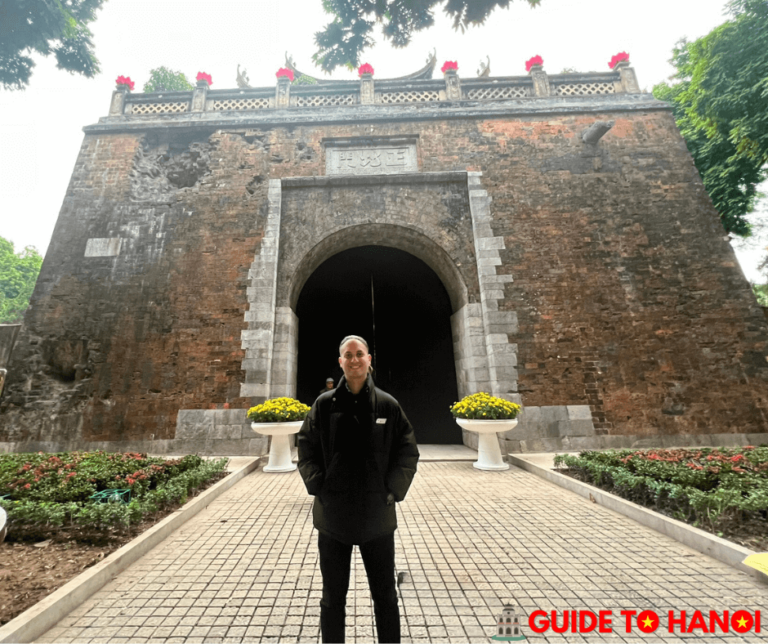
| Chinh Bac Mon | |
|---|---|
| Location | Phan Dinh Phung Street, Hanoi |
| Construction | 1805, Nguyen Dynasty |
| Architecture | Watchtower gazebo on an 8.71m high, 17.08m wide wall |
| Significance | The main northern gate of Thang Long Imperial Citadel |
| Current Use | Partially restored for worship |
| Features |
|
| Historical Significance | Symbol of Vietnam’s rich history and resilience |
| Visitors | Popular tourist destination |
| Additional Notes |
|
Address:
- Cửa Bắc, 46 P. Phan Đình Phùng, Quán Thánh, Ba Đình, Hà Nội
Opening Hours:
- 24/7

